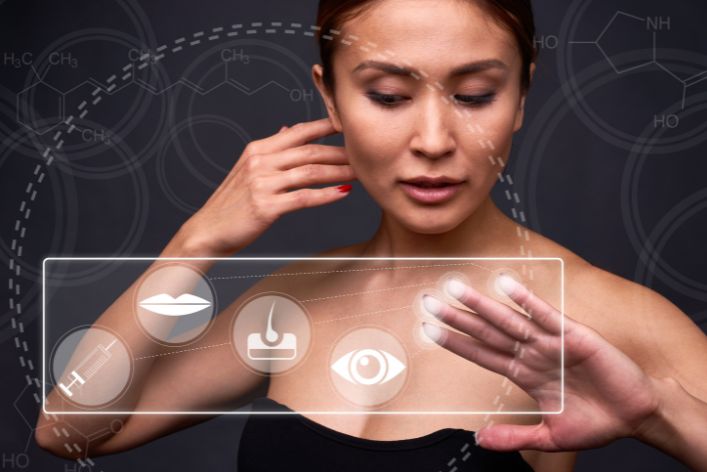Operating systems used primarily in mobile technology, such as smartphones and tablets, include Google’s Android and Apple’s iOS.
Android, based on Linux and partially open source, is more PC-like than iOS.
This is because its interface and functions can be fully customised.
However, other people believe the consistent design aspects of iOS to be more user-friendly.
You should be careful when selecting your tablet and smartphone operating systems.
Switching from iOS to Android or vice versa requires purchasing programs from the Google Play or Apple App Store again.
Currently, Android is the smartphone operating system that most manufacturers choose to utilize. Only Apple devices, like the iPhone, run iOS.
The Android Operating System
Android is a mobile operating system developed by Google.
It is based on the Linux kernel and designed primarily for touchscreen mobile devices like smartphones and tablets.
Android is widely used on various devices, including smartphones, tablets, televisions, and cars.
One of the key features of Android is its open-source nature.
This means that anyone can download the source code and develop their own custom version of Android.
This has led to a large and active developer community, contributing to Android’s success and widespread adoption.
Android includes a range of pre-installed apps, including a web browser, email client, and mapping application.
Additionally, Android users can access the Google Play Store to download and install many new apps and games.
Android is designed to be user-friendly and customizable.
The home screen allows users to easily access their apps and settings, while the notification panel provides updates and alerts.
Users can customize their home screen by adding widgets, changing the wallpaper, and arranging their apps.
Overall, Android is a powerful and versatile operating system that has become the dominant platform for mobile devices.
Its open-source nature, wide range of features, and integration with other Google services make it popular among users and developers.
Read: iOS vs. Android: Which is Better for Mobile App Development?

Apple’s iOS
iOS is a mobile operating system developed by Apple Inc. for its iPhone, iPad, and iPod touch devices.
It is the second most popular mobile operating system in the world after Android.
It is built on the same Unix-based core as macOS, the operating system used on Apple’s Mac computers.
This allows for tight integration between iOS devices and Macs and allows developers to create apps that work on both platforms easily.
One of the key features of iOS is its user-friendly interface, which makes it easy for users to navigate and interact with their devices.
It includes a home screen, which allows users to access their apps and settings, and a control center, which provides quick access to commonly used settings and features.
iOS also integrates with many Apple services, such as iCloud, Apple Music, and Apple Pay.
This allows users to access their files, music, and payment information from their iOS devices.
Another notable feature is its app ecosystem, accessed through the App Store.
The App Store offers various apps and games, ranging from productivity tools and social media apps to games and entertainment.
Overall, iOS is a powerful and user-friendly operating system that is popular among Apple users.
Its integration with other Apple services and robust app ecosystem make it a popular choice for users who want a seamless and enjoyable mobile experience.
Read: The Challenges of Debugging Distributed Systems: Tips and Best Practices
Similarities Between iOS and Android
There are several similarities between iOS and Android, the two most popular mobile operating systems in the world.
Put Your Tech Company on the Map!
Get featured on Nicholas Idoko’s Blog for just $50. Showcase your business, boost credibility, and reach a growing audience eager for tech solutions.
Publish NowSome of these similarities include:
- They are based on a Unix-like kernel and are designed primarily for touchscreen mobile devices such as smartphones and tablets.
- Both iOS and Android offer a range of pre-installed apps and access to an app store, where users can download and install additional apps and games.
- Both of them offer a user-friendly interface with a home screen, app icons, and a notification panel.
- They allow users to customize their devices with widgets, wallpaper, and app arrangements.
- Both iOS and Android offer integration with a range of other services, such as cloud storage, music streaming, and payment systems.
Overall, while there are some differences between iOS and Android, the two operating systems have many similarities regarding their core features and functionality.
Read: How to Choose the Right Programming Language for You
Differences Between iOS and Android
Both Android and iOS have advantages and disadvantages.
Here are the main distinctions between iOS and Android to assist you in selecting the platform that best meets your needs.
Interface
One major difference is that iOS uses a uniform style for all of its built-in apps, while Android allows for more flexibility and customization in terms of interface design.
Additionally, iOS typically uses a bottom navigation bar with buttons for frequently used features.
In contrast, Android uses a top navigation bar and a drawer menu to access various features and settings.
iOS also uses a home button to return to the main screen, while Android uses a combination of on-screen buttons to navigate.
These are just a few examples of the differences between the two operating systems regarding interface design.
Customizability
In terms of customization, one major difference is that iOS offers limited options for customizing the look and feel of the operating system and its built-in apps.
At the same time, Android allows for more extensive customization through third-party launchers and themes.
Android also allows for more flexibility in home screen organization, with the ability to add widgets and customize the layout of app icons.
Additionally, iOS has strict limitations on the ability to modify system settings and files, while Android allows for more access to these areas.
However, with the recent updates Apple has made to its operating system and with the development of third-party apps dedicated to iOS customization, it seems they might be catching up.
Speed
Several factors can affect the speed of an operating system.
So, it’s difficult to generalize the speed of iOS and Android.
However, in general, iOS is known for its smooth performance and fast response times, while Android can vary in terms of speed depending on the device and the version of the operating system.
iOS also has strict hardware and software requirements, which can help ensure that its performance is consistent across all devices.
On the other hand, Android has a wider range of hardware options, which can lead to differences in performance.
Convenience
iOS is only available on Apple devices, while Android can be found on a wide range of devices from various manufacturers.
This means that users who want to use iOS are limited to purchasing an Apple device, while users who want to use Android have more options when choosing a device.
iOS offers tighter integration with other Apple services like iCloud, Apple Music, and Apple Pay.
This can make it more convenient for users who use these services and want to access them from their mobile devices.
iOS devices are generally more expensive than Android devices, which can make iOS less convenient for users on a budget.
Updates
iOS updates are released and installed on all compatible devices simultaneously, while Android updates are rolled out gradually by individual device manufacturers.
This means that iOS users are more likely to have the latest operating system version, while Android users may have to wait longer to receive updates.
Additionally, iOS typically receives regular, major updates annually, while Android updates can vary in frequency and scope.
This can result in a more consistent and up-to-date experience for iOS users.
In contrast, Android users may have to contend with a wider range of potential variations in the operating system.
Read: How to Start Programming for IoT and Smart Devices

Security
In terms of security, iOS and Android both have robust security systems in place.
However, there are a few key differences between the two operating systems.
One major difference is that iOS has a more closed ecosystem, with strict control over the apps available on the App Store and the ability to update the operating system to fix security vulnerabilities regularly.
Android, on the other hand, has a more open ecosystem, which can make it more susceptible to security threats.
Put Your Tech Company on the Map!
Get featured on Nicholas Idoko’s Blog for just $50. Showcase your business, boost credibility, and reach a growing audience eager for tech solutions.
Publish NowAdditionally, iOS devices are generally less likely to be rooted or jailbroken, which can remove some of the built-in security protections.
However, both operating systems offer encryption and other security features to help protect user data.
Conclusion
In conclusion, both Android and iOS offer unique benefits and limitations that cater to different user preferences.
Android’s open-source nature and extensive customization options appeal to users who enjoy personalizing their devices.
At the same time, iOS’s consistent design and tight integration with Apple services provide a seamless and user-friendly experience.
When choosing between these operating systems, consider factors such as customizability, device options, speed, convenience, updates, and security.
Understanding these differences can help you select the platform that best meets your needs and enhances your overall mobile experience.
Before you go…
Hey, thank you for reading this blog to the end. I hope it was helpful. Let me tell you a little bit about Nicholas Idoko Technologies.
We help businesses and companies build an online presence by developing web, mobile, desktop, and blockchain applications.
We also help aspiring software developers and programmers learn the skills they need to have a successful career.
Take your first step to becoming a programming boss by joining our Learn To Code academy today!
Be sure to contact us if you need more information or have any questions! We are readily available.
[E-Books for Sale]
1,500 AI Applications for Next-Level Growth: Unleash the Potential for Wealth and Innovation
$5.38 • 1,500 AI Applications • 228 pages
Are you ready to tap into the power of Artificial Intelligence without the tech jargon and endless guesswork? This definitive e-book unlocks 1,500 real-world AI strategies that can help you.
See All 1,500 AI Applications of this E-Book
750 Lucrative Business Ideas: Your Ultimate Guide to Thriving in the U.S. Market
$49 • 750 Business Ideas • 109 pages
Unlock 750 profitable business ideas to transform your future. Discover the ultimate guide for aspiring entrepreneurs today!
See All 750 Business Ideas of this E-Book
500 Cutting-Edge Tech Startup Ideas for 2024 & 2025: Innovate, Create, Dominate
$19.99 • 500 Tech Startup Ideas • 62 pages
You will get inspired with 500 innovative tech startup ideas for 2024 and 2025, complete with concise descriptions to help you kickstart your entrepreneurial journey in AI, Blockchain, IoT, Fintech, and AR/VR.
We Design & Develop Websites, Android & iOS Apps
Looking to transform your digital presence? We specialize in creating stunning websites and powerful mobile apps for Android and iOS. Let us bring your vision to life with innovative, tailored solutions!
Get Started Today



